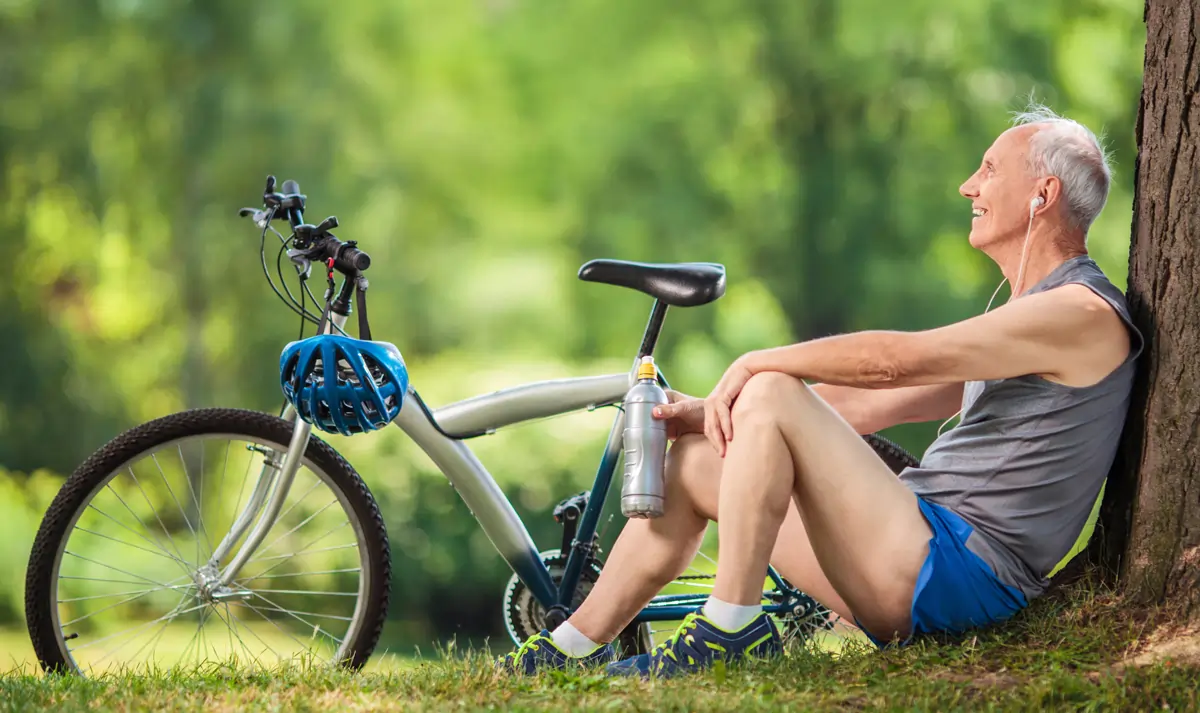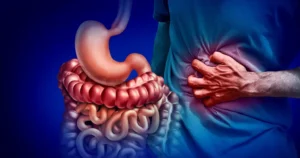
The relationship between cycling and sleep is a fascinating topic that highlights how physical activity can significantly influence rest and recovery. For those seeking better sleep patterns, cycling may hold the key to unlocking restful nights. In this blog, we delve into seven scientifically backed ways cycling can enhance your sleep quality, with practical tips to incorporate this activity into your daily routine.
Cycling and Sleep: The Science Behind the Connection
Understanding how cycling impacts sleep begins with recognising the role of exercise in regulating our body’s internal clock. Regular physical activity, such as cycling, helps regulate circadian rhythms, which govern our sleep-wake cycles. At Health Advisor Talk.com we aim to empower readers with insights into how daily habits, like cycling, can profoundly impact overall well-being. When you engage in aerobic activities like cycling, your body releases endorphins and reduces levels of cortisol—a stress hormone. This process calms the mind, making it easier to relax and fall asleep at night.
Additionally, cycling promotes energy expenditure. When you’ve burned calories during a ride, your body naturally feels more inclined to rest and recover, leading to deeper and more restorative sleep. Studies even suggest that people who cycle regularly fall asleep faster and experience fewer disturbances during the night. This is particularly beneficial for individuals who suffer from sleep disorders, as cycling can provide a natural solution to improve overall restfulness.
Cycling also fosters better cardiovascular health, which indirectly supports sleep. A healthy heart ensures efficient oxygen delivery and blood flow, helping your body recover more effectively during sleep. This improved physical state can significantly enhance your overall well-being and energy levels.
Improves Sleep Quality Through Stress Reduction
Stress is one of the biggest culprits behind poor sleep. Cycling offers a fantastic outlet for stress relief by allowing your mind to focus on the rhythm of your ride and the scenery around you. This mindfulness aspect reduces anxiety and fosters a sense of calmness, making it easier to transition into a restful state at bedtime.
To maximise these benefits, consider cycling outdoors. The exposure to natural light helps regulate melatonin levels, further enhancing your ability to sleep well at night. Melatonin, the hormone responsible for sleep regulation, plays a crucial role in ensuring you experience quality rest. Regular exposure to sunlight during morning rides can help reset your circadian clock, especially for those who struggle with irregular sleep patterns due to shift work or other disruptions.
Another advantage of cycling for stress reduction is the opportunity to connect with nature. Whether you ride through a serene park or along a peaceful trail, the experience of being outdoors can have a meditative effect on the mind. This calming influence translates into reduced stress and anxiety, contributing to a better night’s sleep.
Boosts Energy Levels During the Day
Contrary to what some might think, regular cycling doesn’t drain your energy; it replenishes it. Moderate-intensity exercise increases your body’s ability to produce energy efficiently. When you’re active during the day, you’re more likely to experience a natural dip in energy at night, prompting your body to seek restorative sleep.
Incorporating cycling into your daily routine can be as simple as commuting by bike or scheduling a 30-minute ride in the evening. Just avoid intense workouts close to bedtime, as they may temporarily elevate your heart rate and delay sleep onset. Finding a balance between activity and rest ensures that you harness the full benefits of cycling without interfering with your sleep.
Cycling also improves mitochondrial function—the powerhouse of your cells—which enhances overall energy production. With better cellular energy, you’re able to tackle daily tasks with more vigor and enjoy a more consistent energy level throughout the day. This balanced energy expenditure sets the stage for a smoother transition into sleep at night.
Helps Combat Insomnia
If you’ve ever struggled with insomnia, cycling might be the solution you’re looking for. Engaging in physical activity increases the body’s core temperature, which then cools down post-exercise. This natural cooling effect signals to your brain that it’s time to sleep, much like how the body regulates itself after exertion. Interestingly, research has linked improved physical routines, such as cycling, to a reduction in the risk factors associated with various health conditions, including stomach cancer. This shows how maintaining an active lifestyle benefits both sleep and overall health.
Research shows that individuals who engage in regular cycling report fewer episodes of insomnia and better overall sleep quality. Even a short ride can make a difference over time. For those with chronic insomnia, cycling offers a sustainable, drug-free approach to improving sleep hygiene. Combined with a consistent bedtime routine, this exercise can yield lasting improvements in sleep patterns.
Additionally, cycling has a positive impact on mental clarity and focus. By reducing mental fatigue and improving concentration during the day, it creates a calming effect that carries over into the night, helping you fall asleep more easily.
Mental Health Benefits That Improve Rest
Mental health and sleep are closely intertwined. Cycling has been proven to release “happy hormones” like serotonin and dopamine, which improve mood and reduce symptoms of depression and anxiety. These mental health benefits directly contribute to better sleep.
Health Advisor Talk often emphasizes the importance of mental well-being in achieving overall health. By promoting cycling as a simple, effective activity, Health Advisor Talk supports individuals in creating a sustainable path to improved mental health and sleep quality. Regular cycling fosters a sense of accomplishment and purpose, which can counteract negative thoughts and promote a positive outlook on life.
Cycling also encourages social interaction, whether through group rides or cycling clubs. Building these connections can further enhance mental health, providing emotional support and reducing feelings of isolation—a factor that often disrupts sleep.
Cycling as a Catalyst for Healthy Living
Cycling isn’t just a workout; it’s a lifestyle. Regular physical activity leads to healthier habits, such as better dietary choices and consistent sleep schedules. When you commit to cycling, you’re more likely to prioritise your overall well-being, including sleep.
For example, cyclists often experience reduced dependence on stimulants like caffeine, which can interfere with sleep patterns. A balanced approach to nutrition and exercise can amplify the sleep-enhancing benefits of cycling. Maintaining a well-rounded routine that includes cycling helps foster a holistic approach to health.
Cycling also supports weight management, which is closely linked to sleep quality. Excess weight can contribute to sleep disorders like sleep apnea, which disrupt restful sleep. By incorporating cycling into your fitness regimen, you’re not only improving your cardiovascular health but also reducing the risk of sleep-related issues.
Deeper Rest and Recovery Through Cycling
One of the most remarkable benefits of cycling is its ability to promote deep sleep—the stage where your body performs essential repair and recovery processes. Deep sleep is crucial for athletes and fitness enthusiasts, as it allows muscles to rebuild and grow stronger. Additionally, just as maintaining hygiene and care is essential for your health, understanding how to wash period underwear properly is vital for those who prioritize overall wellness and cleanliness.
Cycling enhances this recovery by stimulating blood flow and oxygen delivery to the muscles. The more regularly you ride, the better your body becomes at repairing itself overnight, leading to improved performance during future rides. Enhanced deep sleep also boosts your immune system, making you less susceptible to illnesses and infections.
Deep sleep is also the time when your brain consolidates memories and processes information from the day. By promoting deeper sleep through cycling, you’re not only benefiting your body but also enhancing cognitive function and mental sharpness.
Practical Tips to Maximise the Benefits of Cycling for Sleep
- Set a Schedule: Consistency is key. Try to cycle at the same time each day to reinforce your body’s natural rhythms.
- Don’t Overdo It: Stick to moderate-intensity rides, especially if you’re cycling in the evening. Intense workouts can delay sleep.
- Invest in Comfortable Gear: Proper cycling gear ensures an enjoyable ride, reducing stress and improving your overall experience.
- Combine with a Sleep-Friendly Diet: Avoid heavy meals or caffeine close to bedtime. Opt for foods that promote sleep, like bananas and almonds.
- Track Your Progress: Use apps or wearable devices to monitor your sleep quality and see how cycling influences it.
- Hydrate Properly: Dehydration can impact sleep quality. Ensure you’re drinking enough water throughout the day and after your rides.
- Create a Relaxing Evening Routine: Incorporate light stretching or yoga after cycling to help your body wind down.
- Cycle with a Friend: Adding a social element to your rides can enhance the emotional benefits and make the experience more enjoyable.
Pedal Your Way to Restful Nights
Cycling and sleep share a symbiotic relationship that benefits both your physical and mental well-being. By incorporating regular cycling into your routine, you can enhance your sleep quality, improve your mood, and foster a healthier lifestyle overall.
At Health Advisor Talk, we believe in empowering individuals with actionable, science-backed information to improve their lives. Cycling is a simple yet powerful tool to achieve better rest and rejuvenation. Explore more health tips and guides on our website to continue your journey toward a healthier you.
For more valuable insights into fitness and health, visit healthadvisortalk.com and discover how small lifestyle changes can lead to significant improvements in your well-being. Let cycling be the first step towards restful nights and energetic days ahead.
Enjoyed the Read? Share It!








